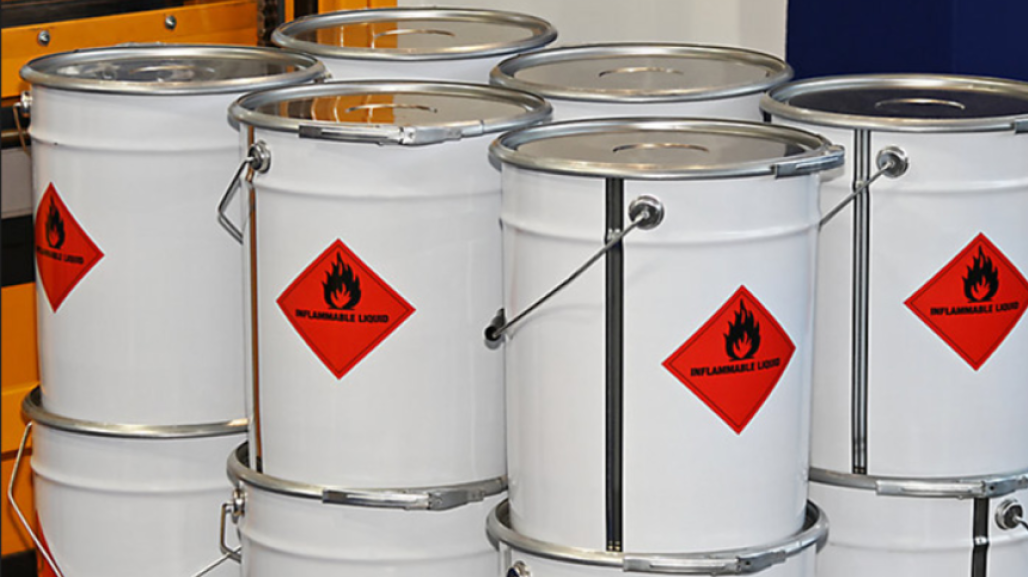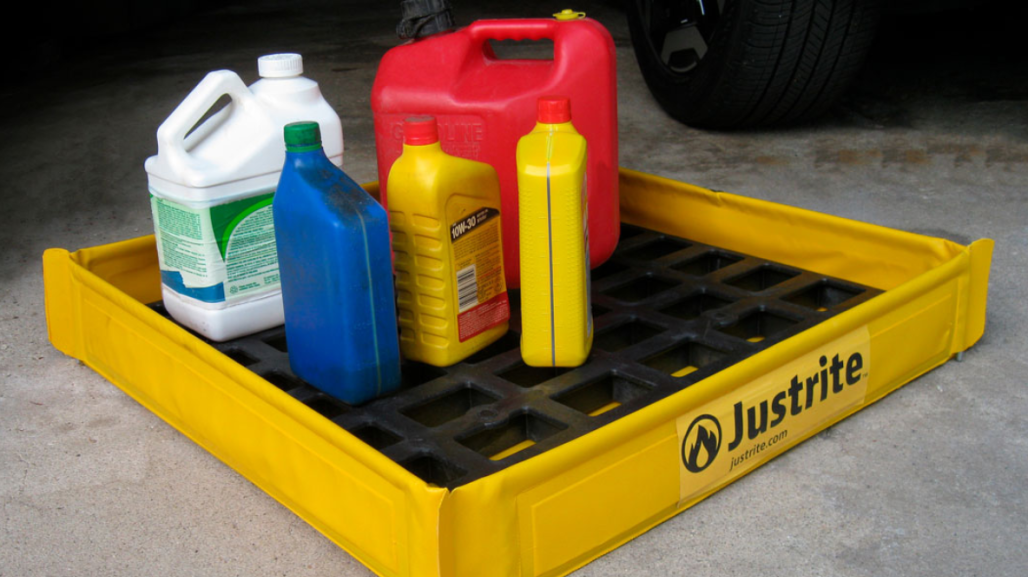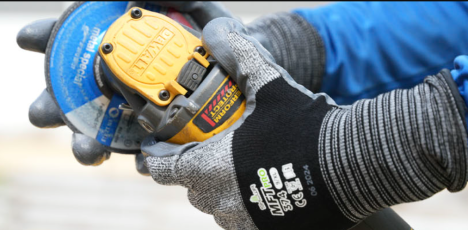How to Select the Right Chemical Resistant Gloves
Q&A for everything you need to know about chemical-resistant gloves.
Q&A for everything you need to know about chemical-resistant gloves.
1. What are chemical-resistant gloves?
Chemical-resistant gloves are gloves that are designed to protect the wearer from exposure to harmful chemicals. They are made from materials that have a high degree of chemical resistance and are able to withstand exposure to a wide range of chemicals without breaking down or permeating. Examples of materials used to make chemical-resistant gloves include nitrile, neoprene, and natural rubber. The specific level of chemical resistance can vary depending on the type of glove and the specific chemical being encountered. It is important to choose gloves that are compatible with the specific chemicals being used and to follow proper usage and disposal guidelines to ensure safe handling.
2. What are chemical-resistant gloves made of?
Chemical-resistant gloves are made from a variety of materials, including:
Nitrile: a synthetic rubber material that is puncture and tear resistant, and has good chemical resistance to oils, solvents, and fuels.
Neoprene: a synthetic rubber material that is chemical resistant, abrasion resistant, and durable. It is often used in harsh chemical environments.
Recommended to use – Showa - size L (10), 12" long, 26 mil thick, supported, neoprene chemical resistant gloves
Natural rubber: a material derived from the sap of rubber trees. It has good resistance to many mild chemicals but can be degraded by stronger acids and bases.
Polyvinyl chloride (PVC): a plastic material that is often used in combination with other materials to enhance chemical resistance.
Recommended to use – Showa - size L (10), 10" long, 30 mil thick, supported, PVC chemical resistant gloves
Butyl rubber: a synthetic rubber material that has excellent chemical resistance, especially to gases and liquids.
The choice of material depends on the specific chemical environment and the level of protection required. It is important to choose gloves that are compatible with the specific chemicals being used and to follow proper usage and disposal guidelines to ensure safe handling.
3. How do you use chemical-resistant gloves?
Here are some steps for properly using chemical-resistant gloves:
Choose gloves that are compatible with the specific chemicals being used: Select gloves that are specifically designed for use with the chemicals you will be working with.
Inspect the gloves for damage: Before using the gloves, inspect them for any signs of damage, such as holes, tears, or other signs of wear.
Put the gloves on correctly: Avoid touching the inside of the gloves with your skin. Make sure the gloves are the correct size and that they fit snugly but not too tight.
Use the gloves as intended: Use the gloves for their intended purpose, such as handling chemicals, and avoid using them for any other purposes.
Replace the gloves regularly: Gloves that have been in contact with chemicals should be replaced regularly to maintain their protective properties.
Remove the gloves properly: Avoid touching the outside of the gloves with your skin. Grasp the wrist of one glove and peel it off, turning it inside out as you do so. Hold the removed glove in the gloved hand and use the other hand to pull the second glove off, turning it inside out. Dispose gloves (Single usage) in a designated waste container. Wash your hands thoroughly with soap and water after removing the gloves.
It is important to follow the manufacturer's instructions and any safety guidelines provided by your workplace when using chemical-resistant gloves. Proper usage and disposal of gloves is critical to minimize the risk of exposure to hazardous chemicals.
4. Are nitrile gloves chemical resistant?
Yes, nitrile gloves are chemical resistant and are often used in industrial settings where they come into contact with various chemicals. They offer protection against a wide range of chemicals, including oils, solvents, and fuels.
Recommended to use – Showa chemical resistant gloves: X-large, 22 mil thick, nitrile-coated
5. Are latex gloves chemical resistant?
Latex gloves have limited chemical resistance and are not recommended for use with harsh chemicals, solvents, and oils. They can be degraded and damaged by certain chemicals, leading to increased risk of exposure and decreased protection. Alternative glove materials such as nitrile and neoprene are often recommended for use with harsh chemicals.
Recommended to use – Showa - chemical resistant gloves: Small, 26 mil thick, neoprene-coated, latex & neoprene, supported
6. Are rubber gloves chemical resistant?
Rubber gloves can provide some level of chemical resistance, but it depends on the type of rubber and the specific chemical they are exposed to. Natural rubber gloves, for example, have good resistance to many mild chemicals but can be degraded by stronger acids and bases. Synthetic rubber gloves, such as neoprene and nitrile, generally have better chemical resistance and are often used in industrial and laboratory settings where they come into contact with harsh chemicals. It is important to select chemical resistant gloves that are compatible with the specific chemicals being used and to follow proper usage and disposal guidelines to ensure safe handling.
7. Are vinyl gloves chemical resistant?
Vinyl gloves have limited chemical resistance and are not recommended for use with harsh chemicals, solvents, and oils. They can be degraded and damaged by certain chemicals, leading to increased risk of exposure and decreased protection. Vinyl gloves are typically used in food service and general-purpose applications where the chemicals encountered are not expected to be harsh. Alternative glove materials such as nitrile and neoprene are often recommended for use with harsh chemicals. Shop for vinyl general purpose gloves here.
8. Are PVC gloves chemical resistant?
PVC gloves, also known as vinyl gloves, have limited chemical resistance. They are typically not recommended for use with harsh chemicals, solvents, and oils as they can be degraded and damaged by certain chemicals, leading to increased risk of exposure and decreased protection. PVC gloves are typically used in food service and general-purpose applications where the chemicals encountered are not expected to be harsh. Alternative glove materials such as nitrile and neoprene are often recommended for use with harsh chemicals.
9. How do you remove chemical-resistant gloves?
Removing chemical-resistant gloves properly is important to prevent exposure to hazardous chemicals. Here are some steps for removing chemical-resistant gloves:
Avoid touching the outside of the gloves with your skin.
Grasp the wrist of one glove and peel it off, turning it inside out as you do so.
Hold the removed glove in the gloved hand and use the other hand to pull the second glove off, turning it inside out.
Discard the gloves in a designated waste container.
Wash your hands thoroughly with soap and water after removing the gloves.
It is important to follow the manufacturer's instructions and any safety guidelines provided by your workplace when removing chemical-resistant gloves. Proper disposal of used gloves is also important to minimize the risk of exposure to hazardous chemicals.
Use glove clip to ensure that gloves are kept attached to the employee's belt or belt loops and secure the gloves so that they will not be lost during the course of a work day
10. Which glove has highest resistance to chemicals?
The level of chemical resistance of gloves can vary depending on the specific chemical being encountered and the type of glove. However, some glove materials are known to have higher resistance to chemicals than others.
Butyl rubber gloves are often considered to have the highest resistance to chemicals, especially to gases and liquids.
Nitrile gloves are also highly chemical resistant, and are commonly used for handling harsh chemicals, oils, solvents, and fuels.
Neoprene gloves also have good chemical resistance and are often used in harsh chemical environments.
It is important to choose gloves that are compatible with the specific chemicals being used and to follow proper usage and disposal guidelines to ensure safe handling. It's also recommended to consult with a specialist or the manufacturer to determine the best gloves for the specific task and chemical.
Brady SPC has been successfully developing, manufacturing and shipping absorbent products for nearly 40 years. Throughout the decades, their customers have relied on SPC products to help them prevent slips, trips and falls within their facilities. Absorbents and spill control products are its focus. Brady SPC has invested in its people, processes and facilities to ensure that it provides their customers with the best products for all their spill control needs.





